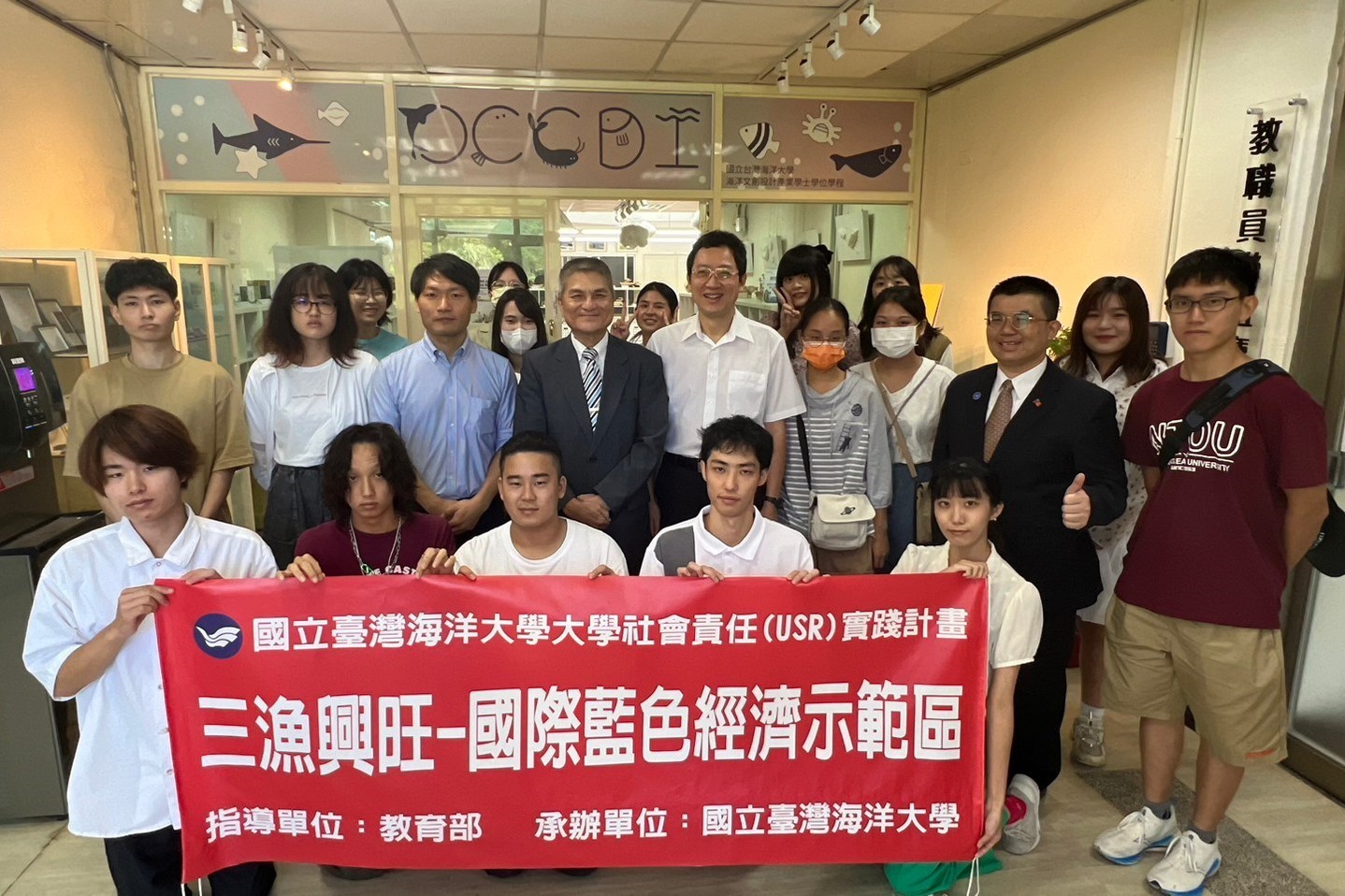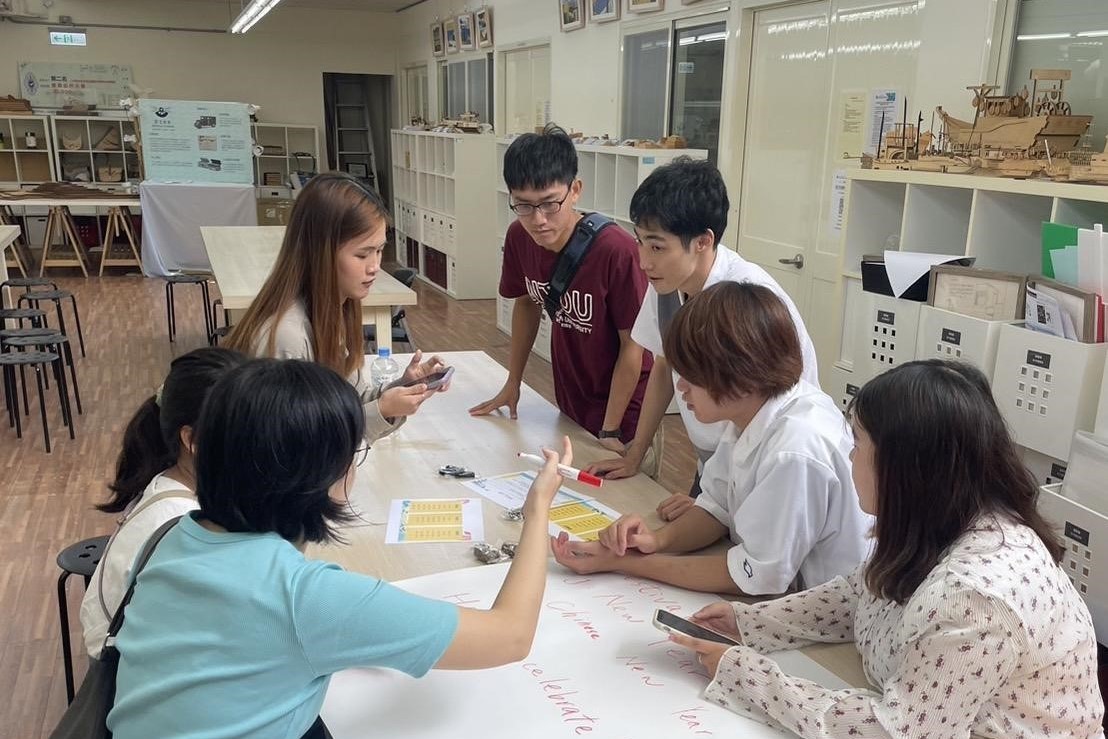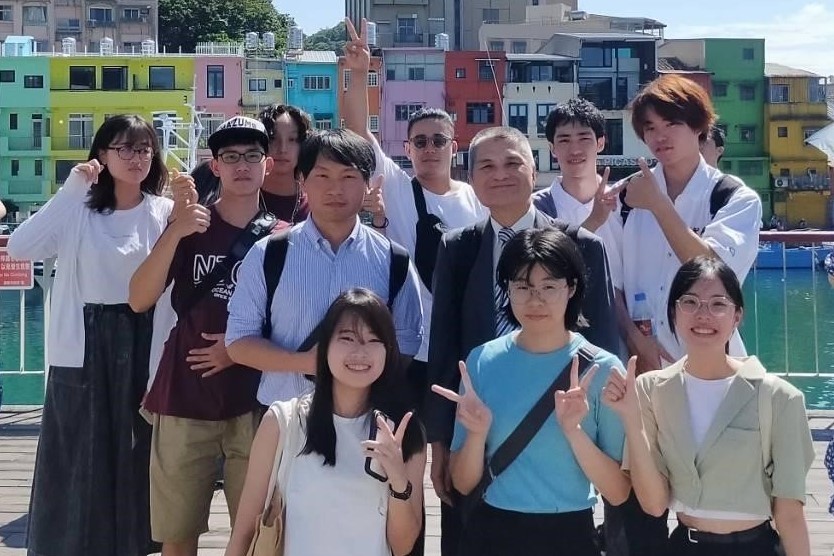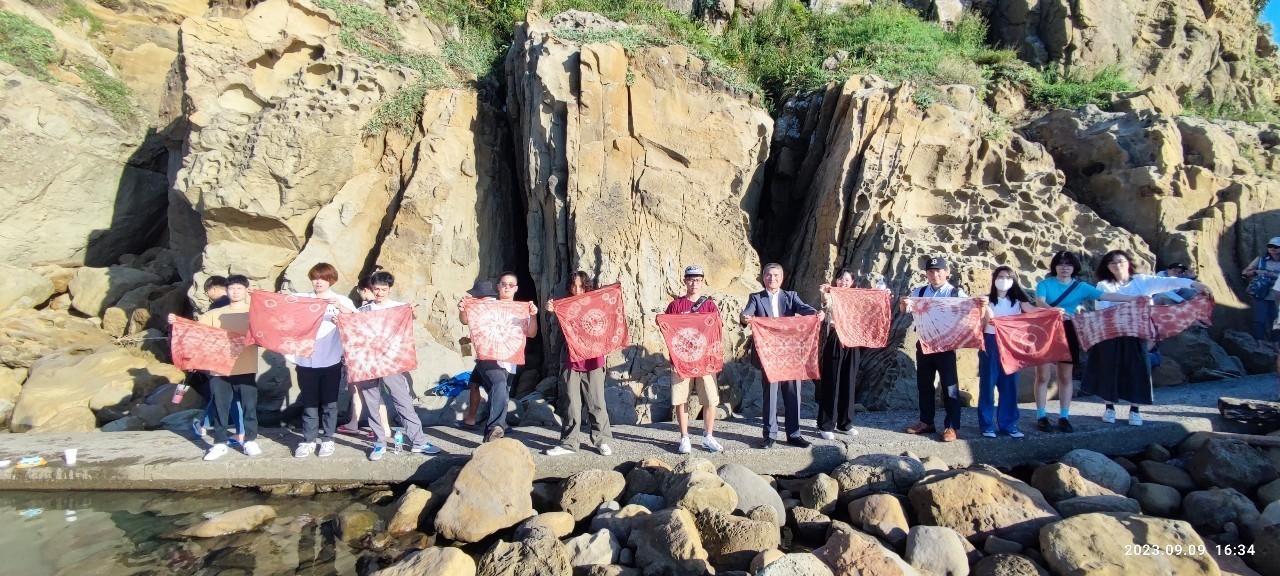Global Youth Exchange: NTOU and Seijoh University's Regional Revitalization Event

National Taiwan Ocean University (NTOU) remains dedicated to serving society by promoting sustainable ocean development. Achieving its mission of local engagement and international connectivity through education, research, and community involvement, NTOU underscores its social responsibility as a university. On September 9th, with the support of the "Prosperity for Fisherman, Fishing Village, and Fishery - International Blue Economy Pilot Zones" project, NTOU collaborated with Seijoh University in Japan to host the "Taiwan-Japan Experience Sharing: Youth Generation Local Innovation Exchange Event" at NTOU's Department of Cultural Creative Design Industries, also known as the Department of Cultural Creative Design.
Leading this event was Prof. Tsong-Ming Lu (盧聰明), Vice President of Seijoh University, accompanied by six Japanese students. Joining them from NTOU were Prof. Jih-Gau Juang (莊季高), Vice President, Prof. Sheng-Wen Tseng (曾聖文), Chair of the Department of Cultural Creative Design Industries, Assistant Prof. Ming-Hao Yang (楊名豪), from the Bachelor's Degree Program in Oceanic Law and Policy, and twelve NTOU students. The primary objective of this event was to spotlight the power and creativity of Taiwanese and Japanese youth while exchanging valuable experiences in local innovation development.
Seijoh University, situated in Aichi Prefecture, Japan, shares NTOU's commitment to deepening international exchanges, particularly within Asia. The university actively promotes international cooperation in education and research, nurturing students' broad international perspectives. This event facilitated cultural exchanges between Japanese and Taiwanese students and encouraged participants to share their ideas and experiences through group discussions. It aimed to explore innovative solutions within different cultural and social contexts.
Dr. Jih-Gau Juang (莊季高) delivered an impassioned message, urging students to actively participate in local innovation. He emphasized the vital role of marine conservation and sustainable usage in this process and expressed hope that the exchange would foster shared experiences in connecting marine expertise with fisheries, fishermen, and fishing villages, ultimately contributing to sustainable development in diverse local contexts.
 |
 |
Seijoh University and NTOU Students and Faculty Engage in Energetic Interactions and Field Experiential Activities.
Students from NTOU's Department of Environmental Biology and Fisheries Science expressed their gratitude for the meaningful and enriching exchange event. Beyond forging new relationships, they gained fresh perspectives and increased confidence in Japanese translation, motivating them to continue improving. One student, Mr. Yamashita, pointed to dietary habits as an example, illustrating how ordinary practices in Taiwan proved to be fresh experiences for Japanese students, thereby deepening their understanding of the differences between Taiwan and Japan. A student from the Master's Degree Program in Ocean Policy, Ms. Tsai, expressed her gratitude for the teachers and the "Prosperity for Fisherman, Fishing Village, and Fishery" project, which made the event possible. She noted the importance of overcoming language barriers and exchanging ideas with students from different cultural backgrounds. This not only enhanced their international communication skills but also enabled them to learn from each other's local innovation experiences, thus broadening their perspectives on the subject.
Dr. Ming-Hao Yang (楊名豪), Assistant Professor and leader of the "Prosperity for Fisherman, Fishing Village, and Fishery" international connectivity sub-project, expressed gratitude to the local partner, Ms. Li-Ling Lan(藍麗齡), Chairwoman of the Badouzi Tourism Industry Promotion Association, for her invaluable assistance. The event included a DIY indigo dyeing and sea drift tour, reminiscent of Arimatsu-Narumi Shibori, a traditional Japanese dyeing technique in Aichi Prefecture. This experience prompted participants to contemplate how Japan's traditional dyeing crafts could be integrated into local innovation, becoming a central discussion topic during the Taiwan-Japan local innovation experience.

This collaboration between NTOU and Seijoh University exemplifies the spirit of international cooperation, fostering a sense of shared responsibility for sustainable development and innovation. Both institutions eagerly anticipate further collaboration, the discovery of more mutually beneficial field experiences, and a continued commitment to creating positive change locally and globally.

